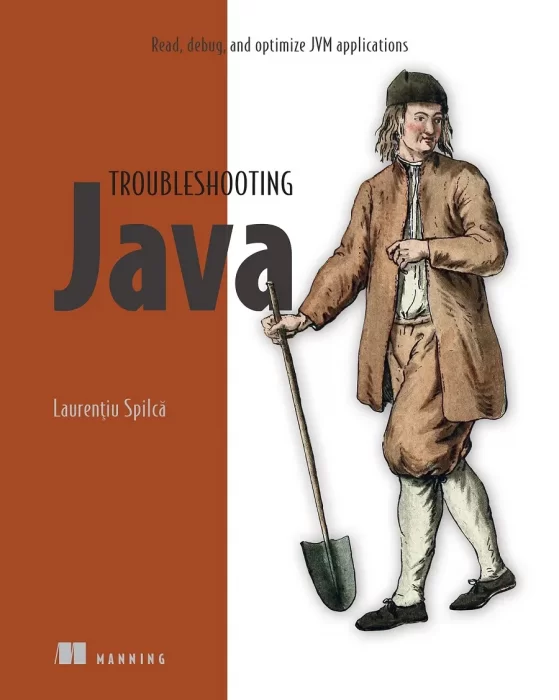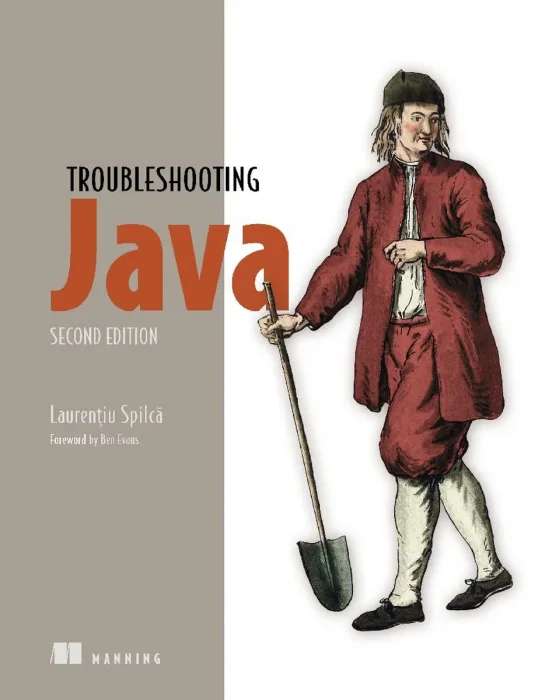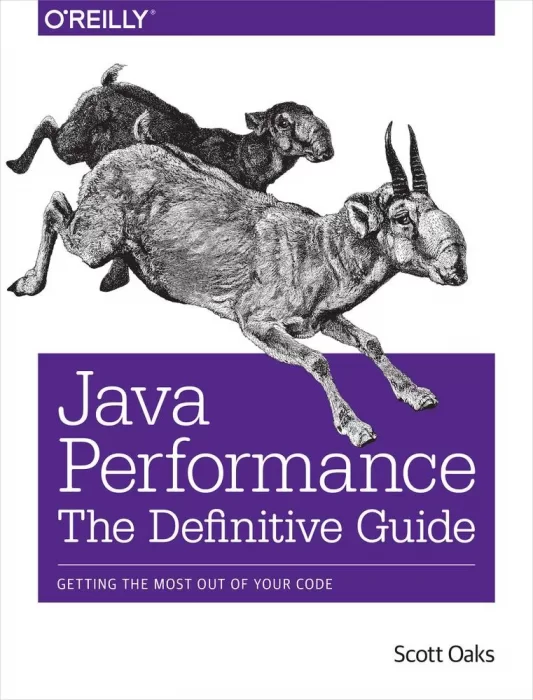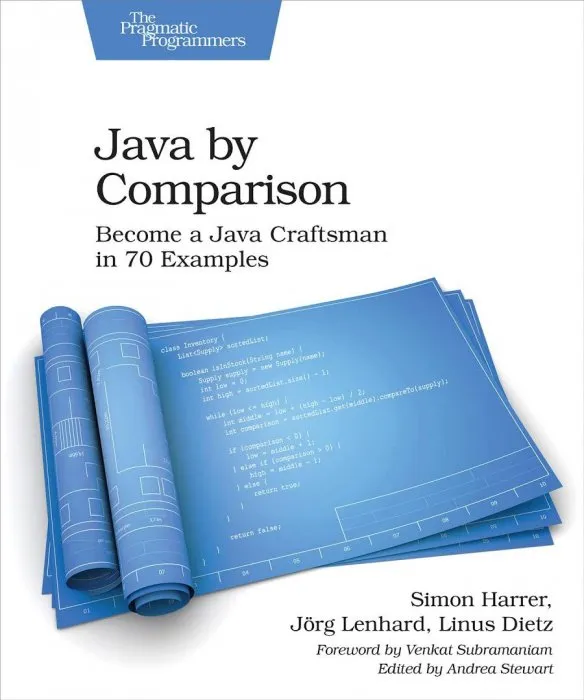Troubleshooting Java: Read, debug, and optimize JVM applications

Date: April 25th, 2023
ISBN: 1617299774
Language: English
Number of pages: 328 pages
Format: EPUB
Add favorites
Effectively reading and understanding existing code is a developer’s superpower. In this book, you’ll master techniques for code profiling, advanced debugging, and log evaluation to find and fix bugs and performance problems.
In Troubleshooting Java: Read, debug, and optimize JVM applications you will learn how to:
• Determine what code does the first time you see it
• Expose code logic problems
• Evaluate heap dumps to find memory leaks
• Monitor CPU consumption to optimize execution
• Use thread dumps to find and solve deadlocks
• Easily follow a service-oriented or microservices system
• Properly use logging to better understand Java app execution
• Use Java debuggers efficiently
Searching for bugs, detangling messy legacy code, or evaluating your codebase for new features sucks up much of a developer's time. Troubleshooting Java: Read, debug, and optimize JVM applications teaches code investigation techniques that will help you efficiently understand how Java apps work, how to optimize them, and how to fix the bugs that break them. You’ll go from the basics of debugging to advanced methods for locating problems in microservices architectures, and save yourself hours—or even days—of time. Each new technique is explained with lively illustrations and engaging real-world examples.
About the technology
Fact: Over the course of your career, you’ll spend far more time reading code than you will writing it. The code investigation skills in this book will radically improve your efficiency in understanding and improving Java applications.
About the book
Troubleshooting Java: Read, debug, and optimize JVM applications presents practical techniques for exploring and repairing unfamiliar code. In it, you’ll learn timesaving practices for discovering hidden dependencies, discovering the root causes of crashes, and interpreting unexpected results. Go beyond profiling and debugging and start understanding how Java applications really work.
What's inside
• Determine what code does the first time you see it
• Evaluate heap dumps to find memory leaks
• Monitor CPU consumption to optimize execution
• Use thread dumps to find and solve deadlocks
• Uncover glitches in code logic
• Locate intermittent runtime problems
In Troubleshooting Java: Read, debug, and optimize JVM applications you will learn how to:
• Determine what code does the first time you see it
• Expose code logic problems
• Evaluate heap dumps to find memory leaks
• Monitor CPU consumption to optimize execution
• Use thread dumps to find and solve deadlocks
• Easily follow a service-oriented or microservices system
• Properly use logging to better understand Java app execution
• Use Java debuggers efficiently
Searching for bugs, detangling messy legacy code, or evaluating your codebase for new features sucks up much of a developer's time. Troubleshooting Java: Read, debug, and optimize JVM applications teaches code investigation techniques that will help you efficiently understand how Java apps work, how to optimize them, and how to fix the bugs that break them. You’ll go from the basics of debugging to advanced methods for locating problems in microservices architectures, and save yourself hours—or even days—of time. Each new technique is explained with lively illustrations and engaging real-world examples.
About the technology
Fact: Over the course of your career, you’ll spend far more time reading code than you will writing it. The code investigation skills in this book will radically improve your efficiency in understanding and improving Java applications.
About the book
Troubleshooting Java: Read, debug, and optimize JVM applications presents practical techniques for exploring and repairing unfamiliar code. In it, you’ll learn timesaving practices for discovering hidden dependencies, discovering the root causes of crashes, and interpreting unexpected results. Go beyond profiling and debugging and start understanding how Java applications really work.
What's inside
• Determine what code does the first time you see it
• Evaluate heap dumps to find memory leaks
• Monitor CPU consumption to optimize execution
• Use thread dumps to find and solve deadlocks
• Uncover glitches in code logic
• Locate intermittent runtime problems
Download Troubleshooting Java: Read, debug, and optimize JVM applications
Similar books
Information
Users of Guests are not allowed to comment this publication.
Users of Guests are not allowed to comment this publication.




